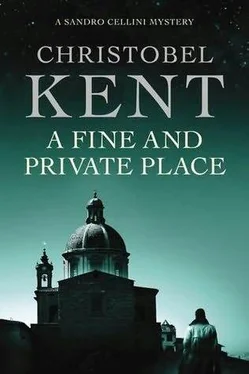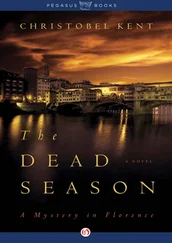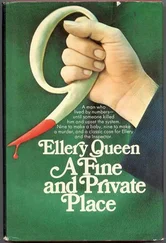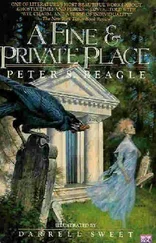Christobel Kent - A fine and private place
Здесь есть возможность читать онлайн «Christobel Kent - A fine and private place» весь текст электронной книги совершенно бесплатно (целиком полную версию без сокращений). В некоторых случаях можно слушать аудио, скачать через торрент в формате fb2 и присутствует краткое содержание. Год выпуска: 2011, ISBN: 2011, Издательство: Macmillan, Жанр: Криминальный детектив, на английском языке. Описание произведения, (предисловие) а так же отзывы посетителей доступны на портале библиотеки ЛибКат.
- Название:A fine and private place
- Автор:
- Издательство:Macmillan
- Жанр:
- Год:2011
- ISBN:9781429970808
- Рейтинг книги:4 / 5. Голосов: 1
-
Избранное:Добавить в избранное
- Отзывы:
-
Ваша оценка:
- 80
- 1
- 2
- 3
- 4
- 5
A fine and private place: краткое содержание, описание и аннотация
Предлагаем к чтению аннотацию, описание, краткое содержание или предисловие (зависит от того, что написал сам автор книги «A fine and private place»). Если вы не нашли необходимую информацию о книге — напишите в комментариях, мы постараемся отыскать её.
A fine and private place — читать онлайн бесплатно полную книгу (весь текст) целиком
Ниже представлен текст книги, разбитый по страницам. Система сохранения места последней прочитанной страницы, позволяет с удобством читать онлайн бесплатно книгу «A fine and private place», без необходимости каждый раз заново искать на чём Вы остановились. Поставьте закладку, и сможете в любой момент перейти на страницу, на которой закончили чтение.
Интервал:
Закладка:
Christobel Kent
A fine and private place
Chapter One
At the wheel of his dark and silent car half an hour before a February dawn, Sandro Cellini sat up a side street in a southern suburb of Florence, thinking about his wife. Luisa.
He should have been thinking about the job, but then not wanting to think about the job was part of the problem.
For three days Sandro Cellini had been paid to follow a seventeen-year-old girl to her upmarket school in the city, and then home again. Her parents thought she had got into drugs, and they wanted to know who was leading her astray. Carlotta Bellagamba was an only child — a ‘precious’ child, as the euphemism went; conceived through medical intervention.
So far: nothing. Friday night was often, according to her parents, the night Carlotta stayed out till the early hours, and today was indeed Friday, but Sandro had no great hopes. Not in life, nor of making any significant discovery that would help Carlotta and her parents understand one another better.
It was the modern world: parents so busy or so nervous they paid a private detective to watch their kid, rather than tackle their own flesh and blood head-on. Children too precious to be allowed a wild moment or two, but that wasn’t Sandro’s decision to make; he was justthe hired hand. As Sandro’s part-time assistant Giuli Sarto had put it succinctly, what else was the precious child to do but go off the rails? An open and shut case.
Children. Having none of his own, Sandro was all too well aware he was not in a position to judge. What kind of a parent would he have made, anyway? Taciturn, like his own father, anguished, like his mother, worn down with work and worry? He couldn’t really even begin to think about how much they would have loved a child, he and Luisa. The fine detail of it: the first day at school, seeing a child learn to ride a bicycle or play football. Rebellious teenagers, thinking they know it all, a girl like Carlotta making a face at her stupid old dad.
The girl’s home was up a leafy side-turning; a handsome two-storey villa — three if you counted the garage and cellar beneath the raised ground floor. It was perhaps twenty years old, with a terrace, a verandah, five olive trees in the front garden, a fronded palm to the rear and two shiny cars in a garage. The job was not a complicated one; it was nursemaiding, pure and simple. The problem was that Sandro didn’t want to be a nursemaid. For thirty years a police officer, with all the dirt and boredom that entailed, at least he’d been a man.
‘It’s bound to start slowly,’ his ex-partner Pietro had warned, the man with whom he’d shared a squad car for fifteen years. The life of the private investigator would be like that of any other freelance; he’d just have to adjust.
Only it hadn’t started slowly, not at all. More than a year before, his first case had flung him in at the deep end with the search for a wayward English girl whose parents didn’t seem even to give much of a damn that she might be dead, and a grieving wife pleading with him to make sense of the suicide of her husband. Flailing about in the worst weather the city had seen in forty years, Sandro had found himself fighting from the outset — with his old colleagues in the Polizia di Stato, with the disbelieving arrogance of the rival force, the Carabinieri, with the expectations of the bereaved and, most of all, with himself. With his own new status: private investigator. Lowest of the low, without a badge or comrades, doffing his cap to people he despised, holding his tongue when he wanted to shout the place down.
It wasn’t as if there was anyone else he could blame for his dismissal from the Polizia. Some might have called it no more than an indiscretion, a misdemeanour, even a good deed, passing information to a murder victim’s father. But he’d broken the rules. Other men might have fought it, clung on to their job for the pension and a warm office in which to sit out the last five years of their working life. Not Sandro.
He had found the English girl, alive, just about. He’d nailed her abductor. He’d unpicked the terrible truth behind the architect Claudio Gentileschi walking into the river and leaving his wife to go on alone, and he’d gone to his doubters and he’d proved to them that he knew what he was doing. Proving it to himself was still a way off.
And then it had all gone quiet. The floodwaters had receded, winter set in. Christmas came and went and Sandro sat in his quiet office in San Frediano, watching the thin sunlight move from one side of the room to the next and wondering if the phone would ever ring again.
In January, after a month of twiddling his thumbs, he’d forced himself to sign up for a computer course; the rudiments. How to retrieve data, how to tell if a machine has been wiped. It had taught him how little he knew, mostly.
There had been two weeks’ work in March, following an elderly baker’s young Chilean wife to find out if she was having an affair or not. Not, as it turned out, though she did have a daughter she was keeping secret from him. She’d thought the baker wouldn’t marry her if she had a child. Would it all end well? Sandro had no way of knowing; stepfathers, in his professional experience, were not reliably kind to their charges. But that was not his business, once the case was closed.
In April, some protection work for the owner of a small chain of garages in the suburbs, a month of accompanying the man — a crude, arrogant piece of work — around the city collecting earnings, while his regular guard was recuperating from a gunshot wound. Sandro hadn’t told Luisa about the gunshot wound.
In June, after a month of twitchy idleness in the crowded city, an Italian-American Trust running a castle in the Maremma had been put on to him by some ancient contact in the British Council. The Trust — an artistic community of some kind — had asked him to do a decidedlypointless bit of background checking on an employee; practically a handout. Was this, he wanted to ask Pietro, as they sat shoulder to shoulder in the friendly, workmanlike bustle of the bar they’d used to go to as working police officers, Pietro’s blue cap between them on the table, was this how it was going to be? Fag-ends and vanity work, waiting for those scraps to fall from the rich man’s table?
As the engine ticked down in the dark, frosty air, the interior of the car grew cold; Sandro opened the flask he had filled with hot tea. On the top floor of the Bellagamba house a light came on behind the frosted glass of a bathroom window: someone was up.
Another light went on downstairs. Did the mother get up first? Did she pad into the warm kitchen in her dressing-gown to make her husband some coffee? And all over again Sandro was not thinking about the job but about Luisa. His wife, with whom he had not shared breakfast for more than a month. What with one thing and another.
When they’d said goodbye outside the bar, Pietro had taken hold of his shoulders in a quick, fierce hug: not like him at all.
He’d said, ‘It’s good if you find you’ve got time on your hands, Sandro. Luisa needs you now.’
Luisa had needed him, when she got ill. Now he wasn’t so sure.
People had rallied round. If you’d asked Sandro before Luisa got her diagnosis, he’d have said they had a handful of friends, no more. But when word got around Luisa had been in hospital, men, women and children would be stopping him in the street to ask if they were OK, if they needed anything. Even the taciturn newspaper seller was searching out freebies for them from the back of his kiosk; restaurant guides, maps of Sicily, dog-eared postcards. Luisa had got tired of it quite quickly; she’d just wanted to get back to work, and anything that smelled of charity made her irritable.
Читать дальшеИнтервал:
Закладка:
Похожие книги на «A fine and private place»
Представляем Вашему вниманию похожие книги на «A fine and private place» списком для выбора. Мы отобрали схожую по названию и смыслу литературу в надежде предоставить читателям больше вариантов отыскать новые, интересные, ещё непрочитанные произведения.
Обсуждение, отзывы о книге «A fine and private place» и просто собственные мнения читателей. Оставьте ваши комментарии, напишите, что Вы думаете о произведении, его смысле или главных героях. Укажите что конкретно понравилось, а что нет, и почему Вы так считаете.












